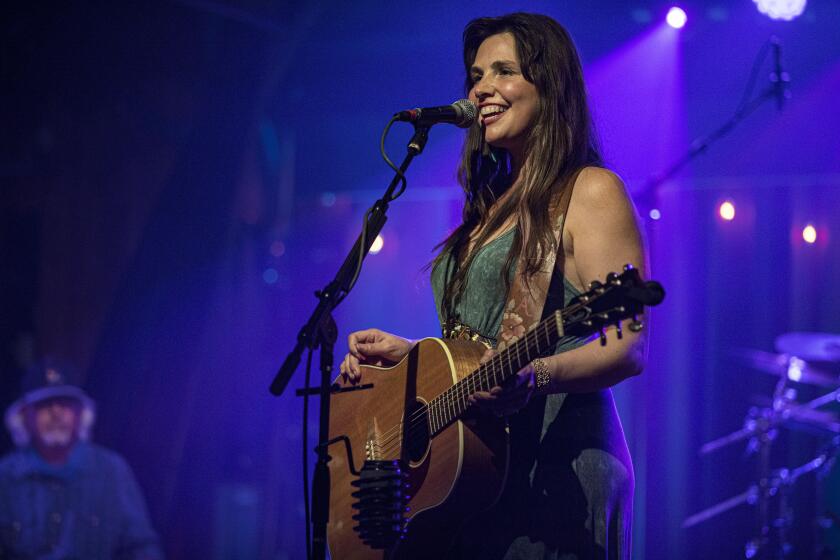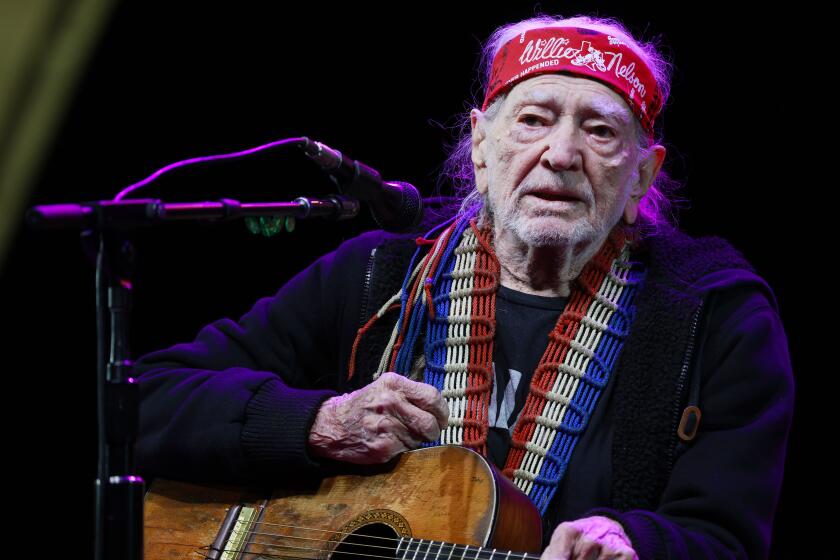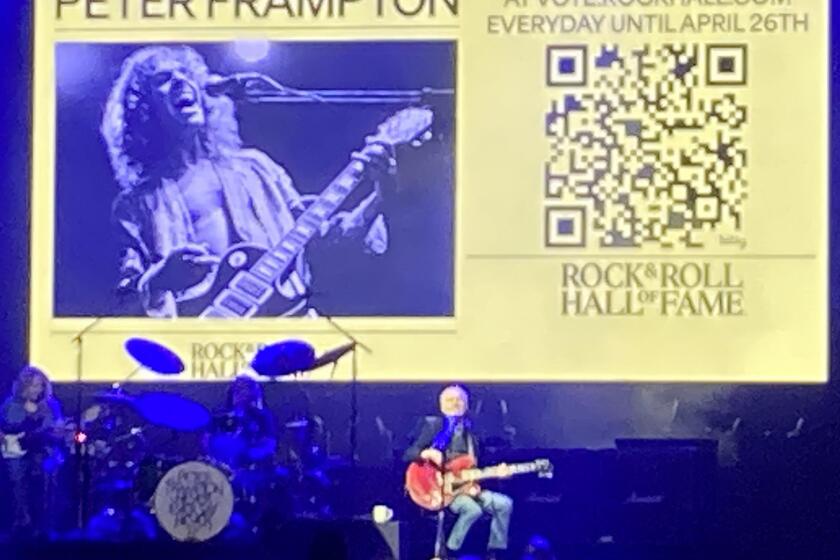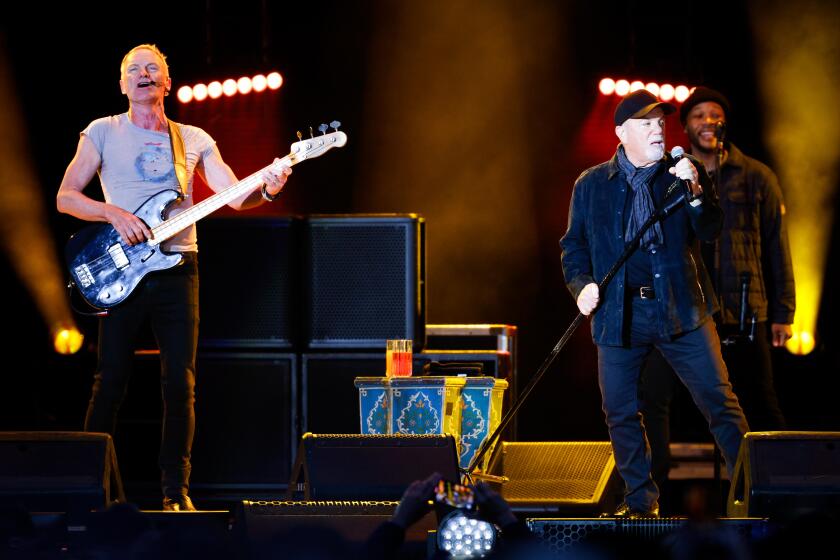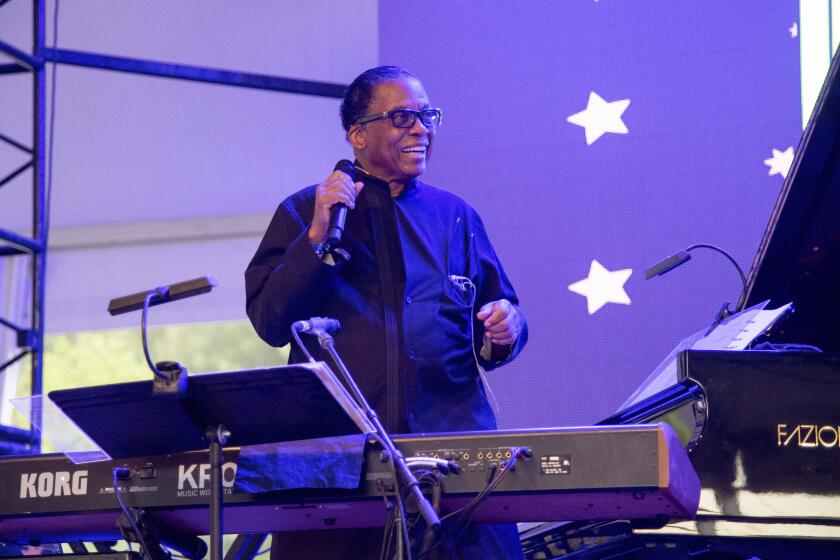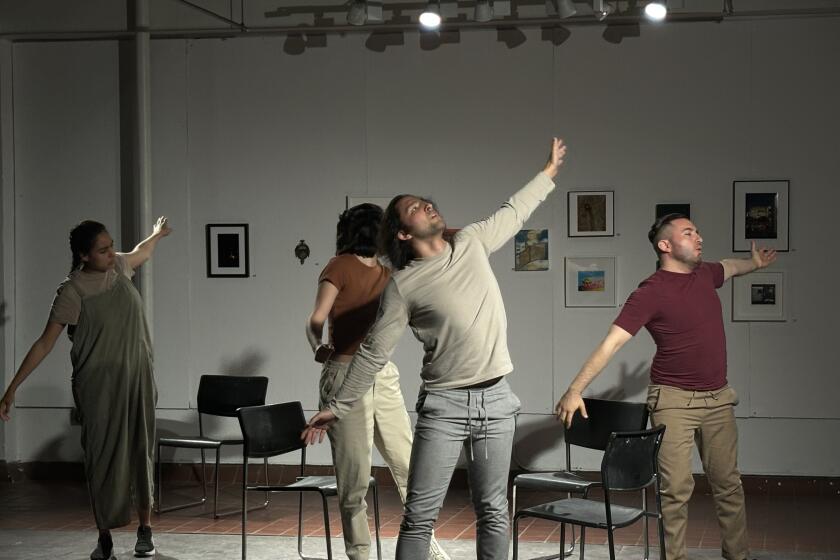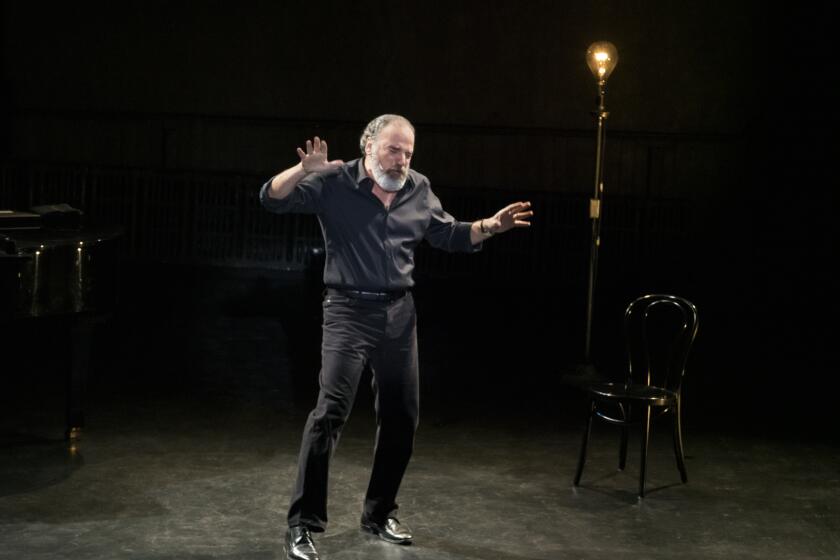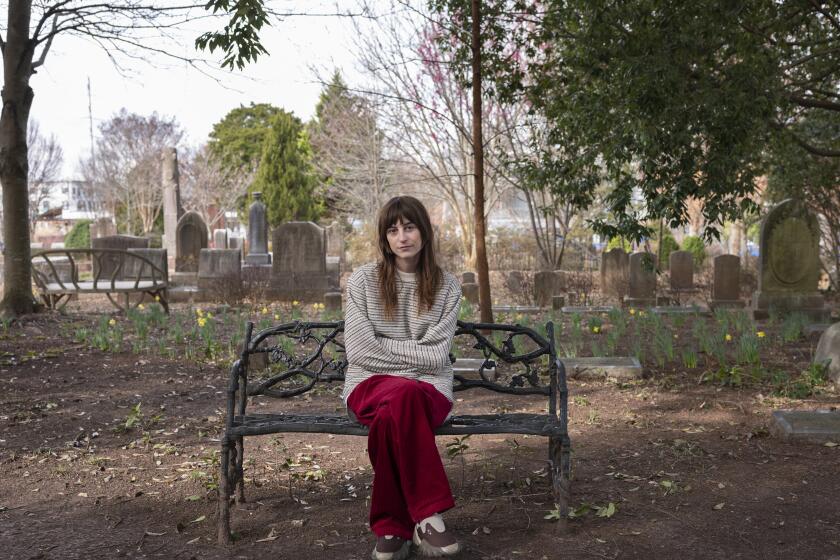Kenny Rogers, country-pop legend, dead at 81. Revisit our 2017 and 2013 interviews
The amiable singer’s band, The First Edition, featured San Diego singer Thelma Camacho. ‘Kenny was very talented,’ she recalls of the singer, who also was a spokesman for Lakeside-based Barona Resort & Casino
Kenny Rogers, the country-pop legend who became a household name with his 1977 and 1978 hits “Lucille” and “The Gambler,” has died at the age of 81.
Rogers passed away late Friday night, according to his publicist Keith Hagan and a statement posted by Rogers’ family on the veteran singer’s Twitter account.
“The Rogers family is sad to announce that Kenny Rogers passed away last night at 10:25PM at the age of 81,” the post read. “Rogers passed away peacefully at home from natural causes under the care of hospice and surrounded by his family.”
The bearded singer’s professional career began in the 1950s, when he played bass in a Texas jazz trio, The Bobby Doyle Three. It extended until 2018, when health reasons forced him to cut short his “Kenny Rogers Final World Tour: The Gambler’s Last Deal,” which was originally scheduled to conclude in late 2017.
“I felt it was important to do a farewell tour while it was still possible for me to do one,” Rogers explained in 2017 Union-Tribune interview that previewed his final San Diego area show at Pechanga Resort & Casino.
“I felt I owed it to the people who would like to come out and see it. I’ve been on the road since the late ’50s with little time away from touring. I’ve accomplished what I wanted to accomplish and much more. I had my time.”
A Houston native, Rogers was born Aug. 21, 1938. He was the fourth of eight children in his family and got his start in music as a kid singing in his church choir.
After scoring a few pop hits in the late 1960s with his band, Kenny Rogers & The First Edition, he launched his solo career and went on to earn 21 No. 1 country hits. Two of them, “Lady” and “Islands in the Stream” (a duet with Dolly Parton), also topped the U.S. pop charts. He also sang on the 1985 all-star single, “We Are the World.”
San Diego native Thelma Camacho was a band mate of Rogers in the New Christy Minstrels in the mid 1960s and then in The New Edition. She sang on such New Edition hits as “Ruby, Don’t Take Your Love to Town,” “But You Know I Love You” and “Just Dropped In (To See What Condition My Condition Was In),” which was later featured in the 1998 Coen Brothers’ film, “The Big Lebowski.”
“Kenny was very talented and had a real knack for finding songs that would become hits,” Camacho recalled in a Saturday morning interview.
“We did something like 27 television shows the first year we were together, including ‘The Smothers Brothers,’ ‘The Ed Sullivan Show’ and ‘Laugh-In.’ We had a lot of fun the first two years. It got difficult the last year, because everyone’s egos got in the way.”
Camacho was with The First Edition from 1966 to 1969. She later moved to Europe and got a solo record deal in Germany. Having retired from singing in the early 1990s, she now makes gold and silver jewelry in her studio at Balboa Park’s Spanish Village.
Recalling her three years in The First Edition, Camacho said: “Kenny was part of a very special time in my life that I’ll never regret and always be grateful for. He was very talented and I’m sorry that he’s passed away.”
Rogers, who appeared regularly in San Diego over the years, had at least one other local connection, albeit more indirect.
In the 1980s, top San Diego roots-rock band the Beat Farmers often performed an uproarious version of his hit, “Lucille,” to which Farmers’ singer Country Dick Montana liberally added a number of choice profanities to the lyrics. Rogers was tickled by the results.
“I think someone played me their version on YouTube,” Rogers said in his 2013 Union-Tribune interview. “Is that the one where they sing: ‘You picked a fine time to leave me, Lucille — you whore, you (female dog)’?”
That’s the one.
Rogers laughed heartily. “I like it,” he said, “when people take songs to a different level.”
Rogers was married five times. He is survived by Wanda Miller, his wife of 22 years, and their twin sons, Justin and Jordan, along with a daughter, Carole Billingsley, from his marriage to Janice Gordon. His other survivors include two sons, Kenny Jr. (from his marriage to Margo Anderson) and Christopher (from his marriage to Marianne Gordon).
On Saturday morning, Barona Resort & Casino in Lakeside released a statement about Rogers, who who helped introduce the casino resort when it opened in January 2002 and served as the spokesman for many years.
“We are very sad to hear about the passing of our friend Kenny Rogers,” the statement said. “He was an amazing spokesperson for Barona Casino for many years. His songs and images play in our minds as we think back to the times we had him at Barona. Kenny always made time for his fans and he filled the room and the commercial sets with laughter and quick wit. He was more than a spokesman to us he was a part of our Barona family and he will be truly missed.”
Rogers’ most recent interviews with the Union-Tribune took place in 2017 and 2013. Both of them appear below in full.
Kenny Rogers, who knows when to fold them, explains why this is his final tour
By George Varga, July 18, 2017, The San Diego Union-Tribune
With his 79th birthday looming on Aug. 21, Kenny Rogers isn’t inclined to run much these days. But the veteran singer knows when to fold them and when to walk away. With his solo career now in its 59th year, he is ready to finally retire.
Or, as he put it in a 2013 Union-Tribune interview: “I don’t think I have anything left to prove. The older I get, the better I used to be.”
Rogers is saying farewell with his Final World Tour: The Gamblers Last Deal, which includes a Sunday show at Pechanga Resort & Casino.
On Oct. 25, he’ll be saluted at an all-star concert at Nashville’s Bridgepoint Arena. The lineup includes Dolly Parton, Little Big Town, Alison Krauss, Flaming Lips, Idina Menzel, Jamey Johnson, Elle King and more, including Rogers himself.
The former jazz bassist-turned-country-pop-superstar is in an understandably reflective mood. Here’s what he told us in a recent interview.
Q: When we spoke in 2013, you cited Ray Brown and Charles Mingus as two of your favorite bassists. For the benefit of someone who isn’t into jazz, what specific Mingus and Brown albums would you say are indispensable?
A: I listened to (1956’s) ‘Bass Hit!’ by Ray Brown a lot and would recommend it. For Charles, it was hard to beat (1959’s) ‘Mingus Ah Um,’ but (1959’s) ‘Mingus Dynasty’ was great as well. Playing stand-up bass was such an important part of my life at the time, and I think these guys — as far as I’m concerned — were the very best. I drew a great deal of inspiration just listening to them.
Q: You are embarked on your farewell tour, as is Deep Purple. Do you and your band ever bust out “Smoke on the Water” during your soundchecks?
A: I can say with certainty there have been no “Smoke on the Water” moments at soundcheck.
Q: But seriously, why say farewell? Why not keep going?
A: I felt it was important to do a farewell tour while it was still possible for me to do one. I felt I owed it to the people who would like to come out and see it. I’ve been on the road since the late ’50s with little time away from touring. I’ve accomplished what I wanted to accomplish and much more. I had my time.
Q: Is this farewell tour for you, the fans, or both?
A: Both. This new show, which goes all the way back to my high school group, The Scholars, allows me to really come full circle and enjoy looking back over the phases on my career. I think at the same time, the fans enjoy it because it’s a show unlike anything we’ve done before. I dusted off some songs I hadn’t performed live in many years.
Q: As you know, Frank Sinatra announced his retirement from music, then ‘un-retired’ several times. So did the band Kiss and many others. Are you leaving the door open, or is this really it?
A: I think you have to leave the door open because you don’t know what life is going to throw at you. But in my heart, I’m ready to stay at home with my wife, Wanda, and our boys, Justin and Jordan (both 13). I missed this period in life for my other kids, and I was determined not to do that this time. That’s why this retirement is such an important issue for me.
Q: What will you do in your retirement? Take it easy? Start a new project?
A: The only thing on my immediate list is to spend a lot of time with my wife and boys. I want us to go experience some cool places together as a family. It’s a chance for me to be there for them for an extended period of time instead of being on the road all the time.
Q: What will you miss most about touring?
A: The camaraderie with the band — learning new songs to do — and the audiences. They’ve always been particularly nice to me, and I appreciate that. I can’t say I won’t miss that, because I will.
Q: And the least?
A: Traveling.
Q: What will you miss most about recording?
A: Picking a song and then finding someone to help you put it together to get the most out of it — a producer — the musicians. It is so rewarding to sit down and hear the final recording of what a song has become.
Q: And the least?
A: I don’t know. I think I enjoy all aspects of recording. I always felt I never did it enough. I needed to spend more time in the studio, but not living in Nashville has its downside.
Q: What are a few key pieces of advice you would give to a young musician starting out now? Not some general platitude, but something you can tell them from hard-earned personal experience?
A: Pay your taxes on time as you make your money, put 25 percent away, then spend the hell out of the rest of it.
Kenny Rogers is now Mr. Cool!
In the past year, the veteran country-pop singer has played at the Bonnaroo festival and sat in with Phish. Now he’s bound for Glastonbury in England, via the Belly Up in Solana Beach.
By George Varga, March 15, 2013, The San Diego Union-Tribune
How cool has Kenny Rogers become, against all odds, as he approaches his 75th birthday in August?
Let us count the ways:
This summer, the veteran country-pop vocal star will co-headline at Glastonbury, the tres hip rock, hip-hop and Electronic Dance Music festival in England (which the Coachella Valley Music & Arts Festival in Indio is partly modeled after).
His Glastonbury gig comes a year after he appeared, however improbably. at the 2012 Bonnaroo festival in Tennessee. There, he sat in with top jam band Phish, who enthusiastically backed him as he (and much of the audience) sang his 1978 hit, “The Gambler.”
More improbably, Rogers not only performed a full set with his own band at Bonnaroo (which last year also featured Radiohead, Skrillex and The Roots), he earned some of the best reviews of the four-day festival.
Billboard hailed Rogers as “spellbinding” and “breathtaking,” and credited him for delivering “one of the 10 best performances of Bonnaroo 2012.”
Spin agreed, noting: “The 73-year-old country star fit in beautifully with the festival’s tie-dyed demographic.”
Fuse went a step further, gushing: “He delivered the most exciting set of the day.”
Rogers, who performs here Thursday at the Belly Up, happily recalled taking the stage at Bonnaroo last year.
“The first thing I said was: ‘Kenny Rogers and Bonnaroo? What’s wrong with this picture?” he chuckled.
“Because I felt a bit uncomfortable. At the same time, what I’ve learned is that all the people who cared about my music in my prime forced their kids to listen to it! And while I know that qualifies as child abuse, the audience at Bonnaroo knew those songs of mine...
“I was totally shocked by the degree of acceptance I got and the (favorable) reviews. I don’t think I deserved them. And I was shocked, sitting backstage with Phish, to find — in addition to ‘The Gambler’ — they knew 10 other songs of mine they offered to play. Bonnaroo was a great opportunity for me to do what I do, and then go to their stage for a song.”
How did Rogers end up at Bonnaroo in the first place? Is it because his longtime lighting director, Jeff Metter, used to work for the Grateful Dead? Guess again.
“My manager handles (Bonnaroo favorites) Kings of Leon,” Rogers replied.
“I really prefer small venues. The thing I learned playing to 60,000 people is, you play to the first 10 rows and acknowledge the last 10. In a small venue, you play to all the rows. It’s not important to me that anyone leaves my show saying: ‘He was the best singer I’ve ever heard.’ What is important is that people say: ‘I had a really good time’.”
Now at work on his next album, Rogers doesn’t have to work to hard to give fans a good time.
The former jazz bassist — “I liked Charlie Mingus and I really loved Ray Brown’s playing in the Oscar Peterson Trio” — has 24 No. 1 singles and 12 No. 1 albums to his credit. A three-time Grammy-winner, he’s sold more than 120 million albums worldwide. Moreover, such Rogers songs as “Lucille” — which was memorably covered by the San Diego roots-rock band the Beat Farmers — have become part of the American musical fabric.
“We’re all products of our history and, in my case, I loved jazz,” Rogers noted from a recent tour stop in Virgina. “I’ve always said that I’m a country singer who’s had a lot of other musical influences. To this day, I love jazz, although some of it today is too abstract for me. My guys in my band are all jazz-capable players and play jazz in their off-time.”
Reading between the lines of his recent best-selling autobiography, “Luck or Something Like It,” Rogers seems to imply he would have been happy to continue playing jazz as a member of the Bobby Doyle Three, the Texas band in which he cut his musical teeth.
At least, he would have had he not found commercial success, first with The New Christy Minstrels, then with The First Edition and, finally, as a top-selling solo artist. Asked if that is an accurate inference, Rogers sounded, well, jazzed.
“Yeah,” he said. “The great thing about success in this country is spotting opportunity and taking advantage of it. The pianist I was with, Bobby Doyle, was very avant garde, in that he wrote arrangements for a three-piece band that made it sound like there were four or five musicians . He orchestrated all the vocal parts we were going to sing. And they were very difficult, totally incongruous to what we were playing (instrumentally). At the time, it was a truly unique union of music and ability.
“I was with him for six years and then I went straight from the Bobby Doyle Three to the New Christy Minstrels, which was (doing) probably the simplest form of music I’d ever heard. What I found in folk music that I didn’t find in jazz were the stories -- stories that affected people. The thing about folk music is, it really is about the people and the political side of things, and I loved that. So some of my songs, when I got into country-music, reflected that.”
In his book, Rogers recounts not only his many hits (and some flops), but also his multiple marriages. In 1964, at the age of 25, he married for the third time.
“I’ve learned that I am somewhat codependent, that I’m not happy being alone and that I can commit,” said the bearded singer, who is now in the 15th year of his fifth marriage.
“I’m 74 and my body is falling apart. But I think I’m singing OK. Apart from the fact that I have 8-year-old identical twin boys, music is my purpose (in life).”
As for his legacy, Rogers is content.
“I don’t think I have anything left to prove,” he said. “The older I get, the better I used to be.”
Kenny Rogers and The Beat Farmers
Back in the 1980s, the nationally prominent San Diego roots-rock band The Beat Farmers often performed an especially memorable version of “Lucille,” which in 1977 gave Rogers the first solo hit of his career. As sung by the deep-voiced Country Dick Montana, the Farmers version added some choice profanities to “Lucille’s” sing-along chorus.
Asked if he was familiar with The Beat Farmers’ rendition of “Lucille,” Rogers paused for a moment.
“Hmm,” he said. “I think someone played me their version on YouTube. Is that the one where they sing: ‘You picked a fine time to leave me, Lucille -- you whore, you (female dog)’?”
That’s the one.
Rogers laughed heartily.
“I like it,” he said, “when people take songs to a different level.”
Get U-T Arts & Culture on Thursdays
A San Diego insider’s look at what talented artists are bringing to the stage, screen, galleries and more.
You may occasionally receive promotional content from the San Diego Union-Tribune.

